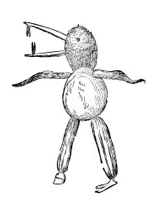"The crime against life," Archibald MacLeish said, "the worst of all crimes, is not to feel." Not to feel the world, not to feel life in its numerous mysteries and in the simplicity it shows at all times, forms in truth a deeply serious mutilation. Nevertheless, it's important not only to feel but to learn to feel, to learn to define the boundary between true feeling and simple arousal of emotion which is its most common and spurious substitute. "In the fully emotional man," W.B. Yeats tells us his father advised him, "the least awakening of feeling forms a harmony in which every chord of every feeling vibrates. Excitation is by itself of an insufficiently emotive nature, the common vibration of one or two chords alone."
To learn to feel: this task alone, which is nothing small, would do more to form a young poet than all the apprenticeship devoted to knowledge of literature, rules, fashions, etc. The manuals frequently forget this essential fact, without which every creative attempt is useless. Through feeling you can validly conquer the language which expresses it; feeling itself, when it is legitimate, creates its own form or the possibility of inventing it. The opposite, in contrast, is less probable. How to get down from the web of formalities to the simple nakedness of the world?
—translated from the Spanish by Peter Boyle
To read the rest of this piece, please click here to purchase JUBILAT 4



